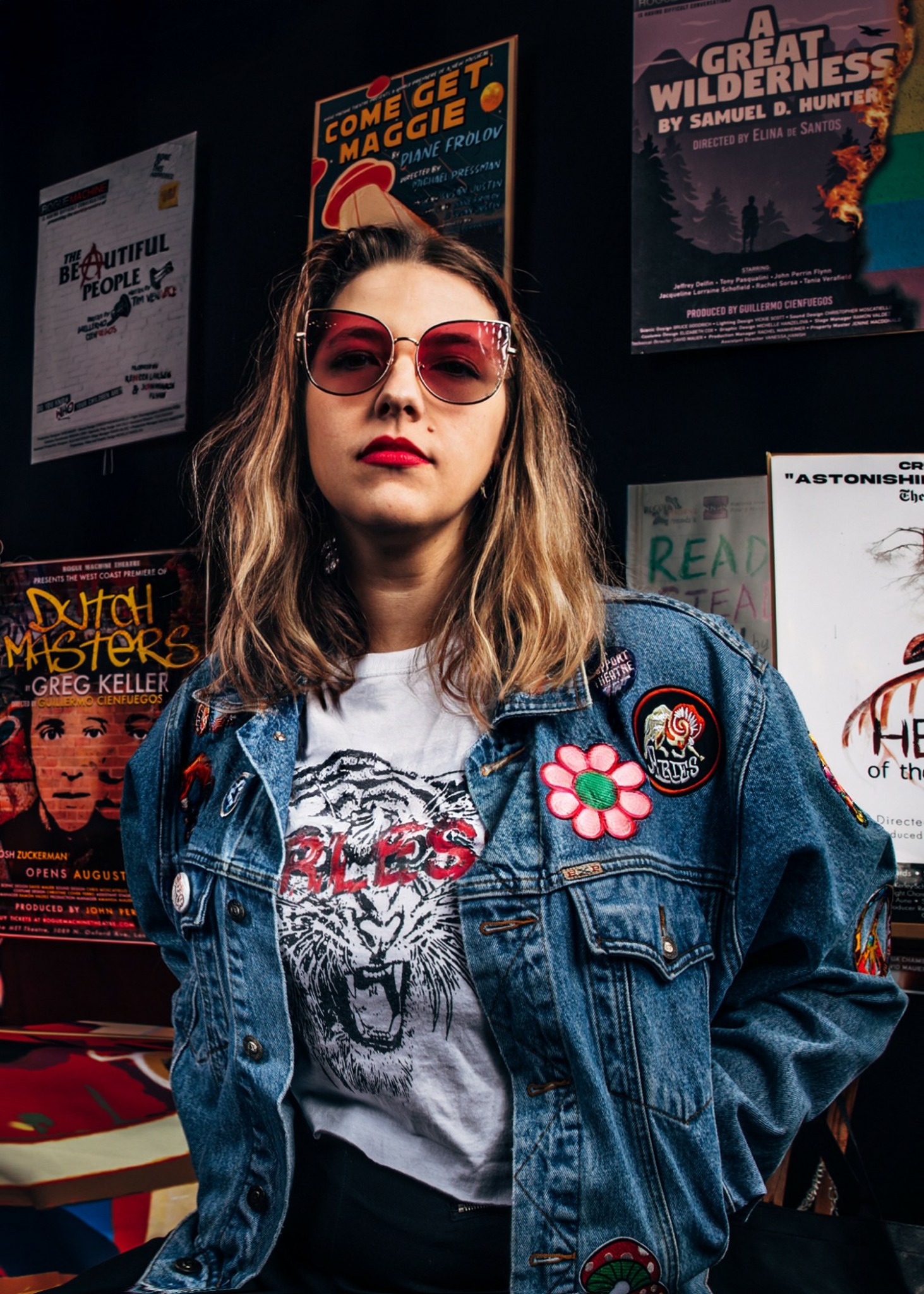Alright – so today we’ve got the honor of introducing you to Michelle Hanzelova-Bierbauer. We think you’ll enjoy our conversation, we’ve shared it below.
Hi Michelle, thanks for joining us today. What’s been the most meaningful project you’ve worked on?
It’s hard to define what makes a project meaningful, isn’t it? Is it the impact it has on the world, or the mark it leaves on your heart?
For me, with *Evanston Salt Costs Climbing*, it was both. I’ve been part of over 40 Rogue Machine productions in the past decade, and every single one has left something with me. Since my very first show, *We Are Not These Hands*—a rare staging of Sheila Callaghan’s post-apocalyptic exploration of survival and technology in 2017—I’ve felt that Rogue Machine is doing something right. I couldn’t quite name it at the time, but there was this immediate feeling of inclusion and trust that caught me off guard in the best way.
I was the stage manager for that production—and as every theatre person knows, that’s a role with immense responsibility. At just 25, newly arrived in Los Angeles, still carrying a thick Eastern European-meets-bad-Scottish accent, I was suddenly responsible for the smooth daily operation of a whole show.
It’s not that I didn’t think I could do the job. It’s just that up until that moment, I’d had to fight for every opportunity. Your early twenties are hard enough—but when you’re a young woman, you’re often not taken seriously. You’re too young to have “real experience,” and yet you’re fully expected to make a living, pay rent, find a partner, and somehow figure out what you want to do with the rest of your life. You can’t be too outspoken—you risk being called controlling, “too much,” or the b-word. But if you’re too quiet, you’re seen as a pushover who’ll never be a leader. Cue the *Barbie* monologue.
So to have this established, award-winning Hollywood theatre welcome me, trust me, and treat my voice and my work with respect—it was huge. I was allowed to make mistakes and grow, supported by leaders like John Perrin Flynn (who personally funded my very expensive visa process) and Amanda Bierbauer (who, truly, taught me everything I know). What Rogue Machine gave me was a sense of shared love—both for each other and for the work we do. That was the moment I knew my core belief—that genuine human connection can fix almost anything—was shared by the people around me at work.
Flash forward to January 2025, and we’re heading into tech for *Evanston Salt Costs Climbing*. This was an especially important show for us. Rogue Machine has been a pillar of intimate theatre in Los Angeles since 2008, with more accolades than I can count: write-ups in the *Los Angeles Times*, shows turned into films (*One Night in Miami* by Kemp Powers was even nominated for an Academy Award!). But this one felt different—it felt like we were standing at the edge of the hill and it wasn’t yet decided whether we’re going to soar or flop.
The playwright, Will Arbery, a finalist for the 2020 Pulitzer Prize for Drama, wrote an eerily magical piece about connection, and how hard it can be to reach one another. One of the characters, played by Kaia Gerber in our production, says, *“There’s something underneath everything and it’s making us all want to die.”* I cried every time I watched the show. There was something in it that tugged at my heart with an unshakable force.
Then the wildfires hit Los Angeles. The day before tech, we lost power at the theatre. My heart sank.
Friends and colleagues were evacuating their homes. The fires were growing, out of control. Melrose Ave had no electricity, and another wildfire had started just two miles north of the theatre. The air was thick, the sky a brutal range of orange to onyx. At night, you could see the flames from our doorstep. Some of our designers had to flee their homes, grabbing only what they could carry.
Two days later, the power came back.
And then came the questions: Do we move forward? Do we keep working like nothing’s happening? Does it even matter? What *is* important right now?
Rogue Machine did what Rogue Machine always does—we put people first. We asked the staff, we asked the cast, and every single person said yes. Everyone wanted to work.
That first days of tech were unforgettable. We changed things up. Everyone was invited to bring their animals with them—no one wanted to leave their pets at home in case the fires came closer. Our lighting designer Dan Weingarten brought Kodiak, a big shepherd-type dog. Kaia brought her fluffy pup Milo. Lesley Fera had her two adorable dogs. Jenny Flack, who was painting our lobby murals, worked with her black mix Rhuna at her feet. We ordered good food for everyone. Paige Simunovich, Kaia’s understudy, and Athena Saxon, our producer and ASM, took turns looking after the animals while we built the show, cue by cue.
“Hey, how are you?”
“Not great, actually.”
“Yeah…want a hug?”
There was a shared softness. Real camaraderie. No yelling, no drama—miraculous, if you’ve ever been through tech. We worked with care. And we opened with a sidewalk full of paparazzi and a lobby packed with celebrities. *Evanston Salt Costs Climbing* was born in uncertainity, and delivered with love—for our craft, and for each other.
In that moment, when we all felt powerless, working on that show felt like a lifeline. We couldn’t fight the fires, but we *could* fight the helplessness. By showing up. By creating. To be dramatic about it—it felt like what I imagine the people of London felt during the Blitz, refusing to evacuate even as bombs fell. I know that’s a stretch. But that’s how it felt: art and human connection in the face of helplessness.
And that’s what I’ll carry with me: the proof that no matter how bad things get, theatre—when it values the human connection above anything else—can help us get through it together.
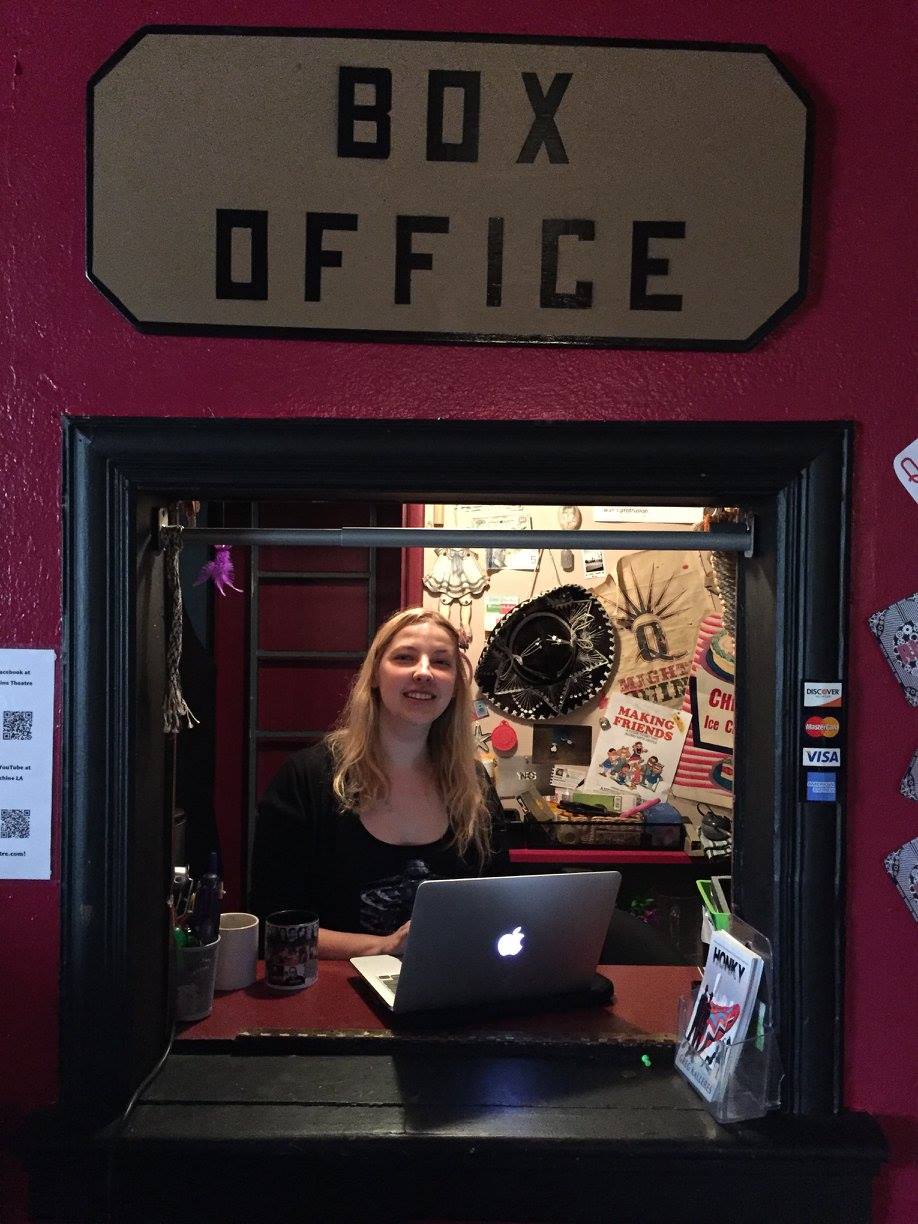
Michelle, love having you share your insights with us. Before we ask you more questions, maybe you can take a moment to introduce yourself to our readers who might have missed our earlier conversations?
My name is Michelle Hanzelova-Bierbauer, and I am an immigrant. That feels dangerous to say these days. I was born while the Soviet Union was crumbling around my hometown of Bratislava, Slovakia, and I’ve always been fascinated by art and philosophy. I grew up in a small Eastern European country just beginning to discover what life without a Communist regime looked like—including the influx of American pop culture into a society that had, until then, been largely closed off.
From as early as I can remember, I was captivated by the freedom I saw in American culture. For the first time, I saw people of color, women in positions of leadership, and magical Disney animation—all on our small square TV, via VHS tapes. It was a time before social media, when your only window to the outside world came through movies in the cinema and pop culture magazines. For kids today, that might sound limiting. For me, it was unprecedented access to the world.
As I grew up, I wanted to know everything. I wanted to experience every human emotion, and I was always seeking ways to connect with people. I read, I wrote, and I competed—and won—poetry and debate competitions. I was a child voice actor from the age of six, essentially working professionally while still in school. Often surrounded by adults, I found their stories and ideas endlessly fascinating. I’ve always loved this quote that makes me laugh: *“Were you told as a child that you’re an old soul, or did you just have a non-traumatic childhood?”*
I knew early on that I wanted more than what my home country could offer. But I didn’t necessarily expect to find it in America. By the time I was looking at universities, I knew the reality: I was too poor to afford college in the U.S., and not good enough at math or science to earn a scholarship. But I wanted out. I wanted the freedom to explore, to love whomever I chose, regardless of gender. So I applied to Queen Margaret University in Edinburgh, Scotland, and studied Film and Media—a discipline that let me lose myself in academia for a few years. I wrote essays about Hannibal Lecter and the importance of Clarice, about how *Resident Evil* revolutionized horror movie marketing. Every summer, I juggled two full-time jobs while exploring the Edinburgh Fringe—the largest theatre festival in the world. My walk to work was along centuries-old cobblestones, surrounded by castles and the kind of ancient magic you only understand once you’ve lived there. The work—waitressing, child care—was grueling, but the backdrop was intoxicatingly inspiring.
In 2015, I volunteered during the Edinburgh Fringe with a theatre company from Los Angeles. I had cold-emailed the producer, Andrew Carlberg (who would go on to win an Oscar), and helped with their show—running box office, seating audiences, passing out postcards. I made connections. I made friends. (Side note: years later, I married one of them.)
Soon after, I visited Los Angeles. My friend Zibby Allen (you might know her from *Virgin River* on Netflix) picked me up from LAX and asked if I minded going straight to Rogue Machine Theatre for a *Rant & Rave* show—there wasn’t time to drop my bags at her place. Some of our Edinburgh friends were performing, and I said, sure—let’s support them.
That night, I met the people who would change my life: Artistic Director John Perrin Flynn, the incredible stage manager (now General Manager) Ramon Valdez—who’s still my best friend and colleague—and my future wife. I was invited to help with a Rogue Machine fundraiser we affectionately called “The Naked People.” So, every weekend, I was in Amanda’s backyard, helping her, Ramon, and photographer Jeff Lorch take professional nude portraits of our LA theatre community.
For years after, whenever I re-met the participating actors, I’d say: “Hi, I’m Michelle. We’ve met—I saw you naked.”
After that, I volunteered at the theatre daily. I didn’t want to be anywhere else. Every new task became an opportunity to learn. I lived and breathed theatre—with all its drama, complicated relationships, highs, and lows. Not every experience was healthy, but I thrived in the adventure. Late-night sidewalk chats outside Santa Monica Blvd, smoking with actors and crew, talking about life and art—those moments became part of the life I didn’t want to lose.
With support from John and Amanda—who were my fiercest mentors—I secured a work visa and moved to LA full time. I’ve learned from the best, and I continue learning every day from my colleagues.
Rogue Machine Theatre, at its core, is a group of people who stubbornly refuse to stop making art. We’ve stood on the edge of bankruptcy more than once, saved time and again by our community and our leaders. Every emergency fundraiser, every dollar raised, went directly to keeping us alive. As a nonprofit, we’re not here to turn a profit—we’re here to have *enough* to keep supporting artists: playwrights who want their work on its feet, actors who shine brightest on stage. I’ve seen this company endure loss and hardship, but I’ve also witnessed the most beautiful parts of the human experience—onstage and off. Couples have fallen in love backstage and started families. Kids who used to hang out while their parents worked shows are now getting into top acting schools. Rogue Machine keeps producing new works by local and international playwrights—risking everything for the next great story.
In December 2024, John Perrin Flynn stepped down as Artistic Director. He’s been called one of the last remaining legends of small theatre in LA, and I believe that’s true. He passed the torch to Guillermo Cienfuegos, an extraordinarily talented director who, alongside Executive Director Justin Okin, is keeping Rogue Machine alive. They brought in new blood: five years ago, the room was full of very talented—and very not young—artists. Now, we’re a vibrant mix of experience and youth, learning from and supporting one another.
We have a salaried staff of 11, and countless actors, designers, directors, and volunteers. I’m the Marketing Director, and my approach to social media is simple: brutal honesty and full transparency. Young people who’ve been bombarded by ads their whole lives can spot insincerity in a heartbeat. If you’re faking it, they won’t buy in. But if you’re offering a raw, honest, meaningful experience—they show up.
Every show at Rogue Machine taps into something deeply human. In this looming age of AI and deepfakes, where even breaking news and images can be convincingly faked, theatre remains one of the last painfully honest art forms. John used to say theatre has been dying for thousands of years. And yet—here we are.
Hopefully, with the support of the Los Angeles theatre community, it will keep living for a thousand more to give the future generations of artists the home they’ve been looking for.
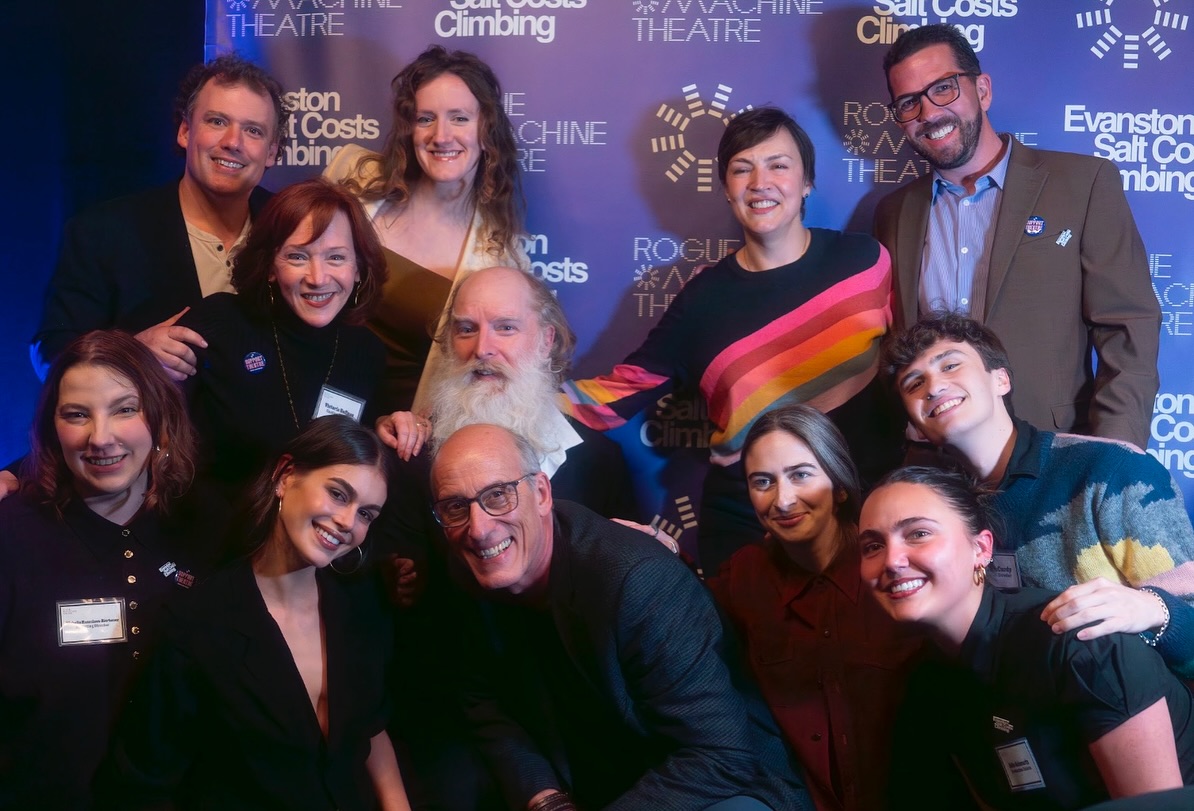
How can we best help foster a strong, supportive environment for artists and creatives?
In my opinion, the best way to support artists is to understand that art can only be created within a community. Every art form requires both the artist and the audience. A painting is just paint on a canvas until it’s displayed and interpreted by others. A live theatre performance cannot exist in a vacuum. Art, at its core, is a constant exchange of emotion between the work and its observers.
That’s why it shouldn’t be only the artists who feel the responsibility to keep art alive. The people who seek out art—who are moved by it—should also seek to support it, whether financially or by volunteering. A thriving creative ecosystem only works when everyone is stubbornly committed to lifting each other up instead of tearing each other down. We need to recognize that there is no ceiling, no “top”—just a never-ending reach toward something meaningful within us. When we believe in one another, when we forgive quickly and move forward, when we embrace the complexity of each human being and offer encouragement—that’s when we all thrive. But when we begin dividing ourselves into boxes of *us* and *them*, that’s when we lose.
Take the Los Angeles theatre scene, for example. It’s not Rogue Machine Theatre versus the other theatres. It’s all of us. There is no real competition—there’s just community.
One of my favorite traditions we’ve started at Rogue Machine is our *Theatre Ambassador Night*. We invite Artistic Directors, marketing teams, box office staff—really anyone who works tirelessly behind the scenes to bring theatre to the public. They come see our show for free, and afterward, we host a little party in the lobby. Everyone knows everyone. The energy that night is palpable—electric with enthusiasm and friendship.
That’s how we build a thriving arts ecosystem: by showing up as our full, authentic selves and lifting each other up.

Learning and unlearning are both critical parts of growth – can you share a story of a time when you had to unlearn a lesson?
One of my very dear friends, the brilliant sound designer and composer Chris Moscatiello, used to drive me home after rehearsal almost every night. I remember one night in particular when everything felt overwhelming. I was in my mid-twenties, spending nearly 18 hours a day at the theatre mounting a show. I’d just gotten out of a relationship, and I was determined to prove my worth—to whom, exactly, remains a mystery to this day. I broke down in Chris’s car, venting about one thing or another.
Chris has always been one of my favorite people to talk to because he says things I don’t expect. That night, he looked me dead in the eye and said, “Michelle. It’s a show.”
Those three words somehow changed how I look at life. For the first time in a while, I stopped and looked at the work from the outside. While I believe art is the most important form of human expression, it’s not worth burning yourself out for.
There’s long been a badge of honor in being the hardest-working person in the room. Part of that, I think, stems from American individualism. In Europe, people work their allotted hours and then take a month off to vacation in Greece or Italy. No one cancels their vacation for work. No one answers emails or texts after hours. There’s *Work* and there’s *Life.* In America, the two are often the same. When everyone around you is working themselves into the ground, you start to believe that if you’re not trying to keep up, you’re falling behind. But how do you “catch up” to a culture that never stops? Even hobbies start to feel indulgent. Why are you gardening when there are emails waiting? It’s sink or swim – and if everyone is swimming, why would you choose sinking? But how can one be fine with swimming if they can see others sinking?
It’s not like I suddenly woke up enlightened the next day and stopped burning myself out. Not even close. But that moment in the car was the beginning of a long process of unlearning. And honestly, I’m still unlearning. I’m still reminding myself that work does not define a person. It can be a meaningful part of your life, but the mundane, boring, selfish things you do for yourself—that’s what makes you human.
I spend time in my garden. I sculpt clay. I decorate my home. I hang out with my dogs. I take trips to visit my friends. Now that I’m in my thirties, I kind of miss the version of myself who was a little unhinged and wanted to do everything, everywhere, all at once. But I also really like the version of me that values building strong teams and relying on others. I’m lucky that my work still feels like my calling. And I’m even luckier to be surrounded by incredible people—both at work and in my personal life—who help me find balance.
At my workplace specifically, we talk about burnout a lot. All of us have seen too many brilliant people destroy themselves in small theatre—ending up in therapy or leaving art behind completely. I’m grateful to work in an environment where, even though we’re all still unlearning, we try to keep each other in check. If someone is overworking, we try to acknowledge it and address it. We don’t always succeed. But we try. And honestly, that effort—to take care of each other’s mental health—is a pretty impressive first step.
Contact Info:
- Website: https://www.michellehanzelova.com
- Instagram: /mishicka47
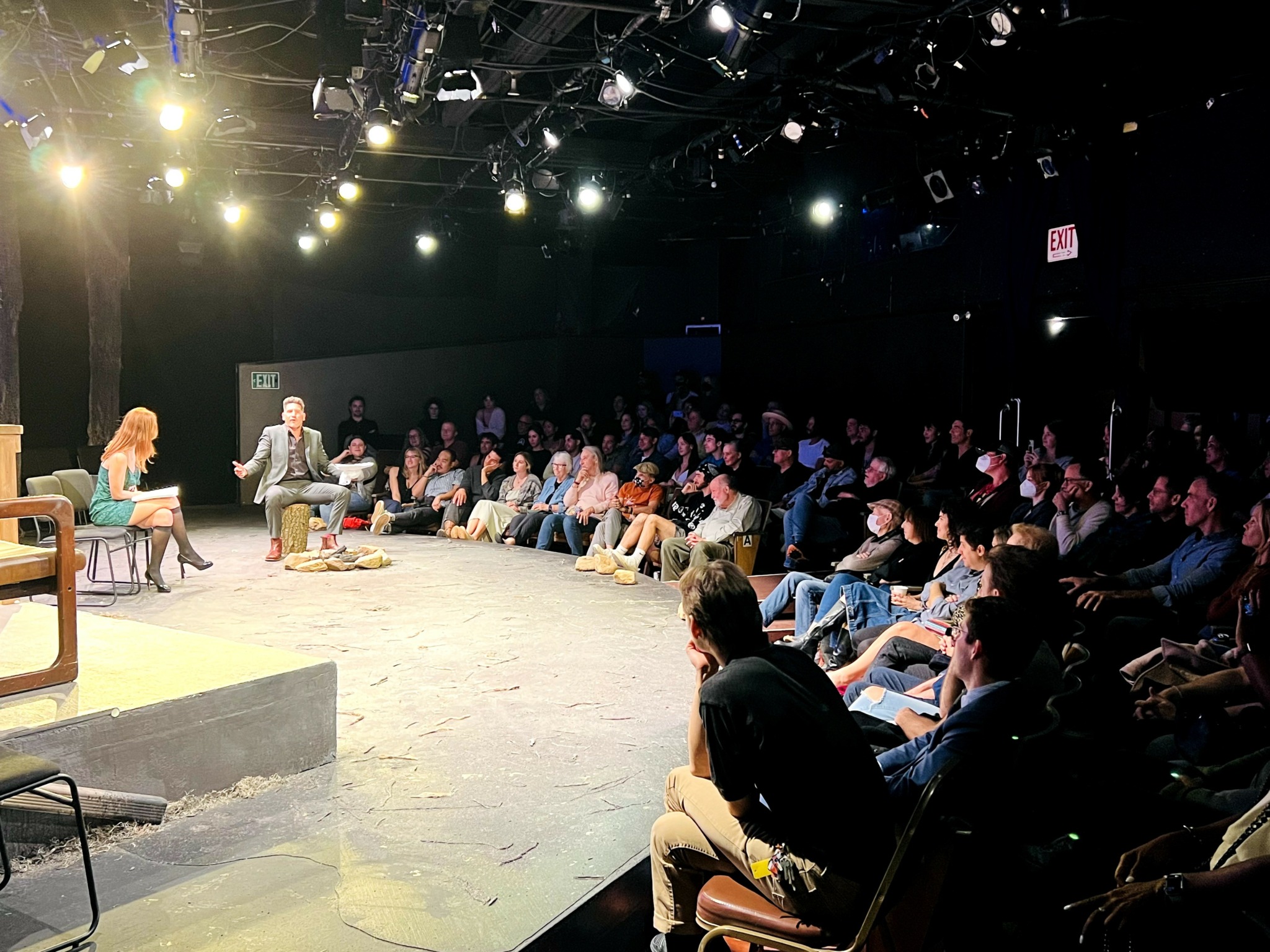
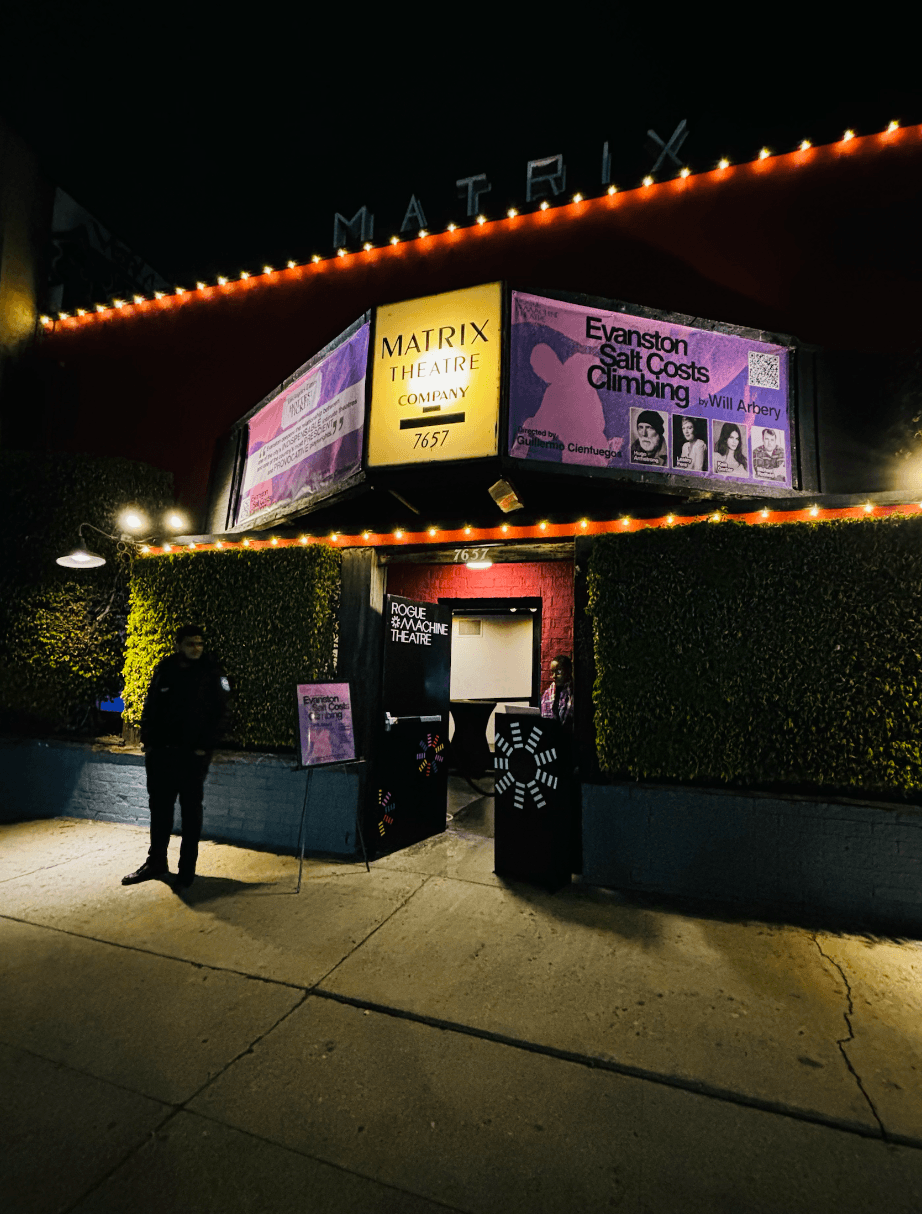
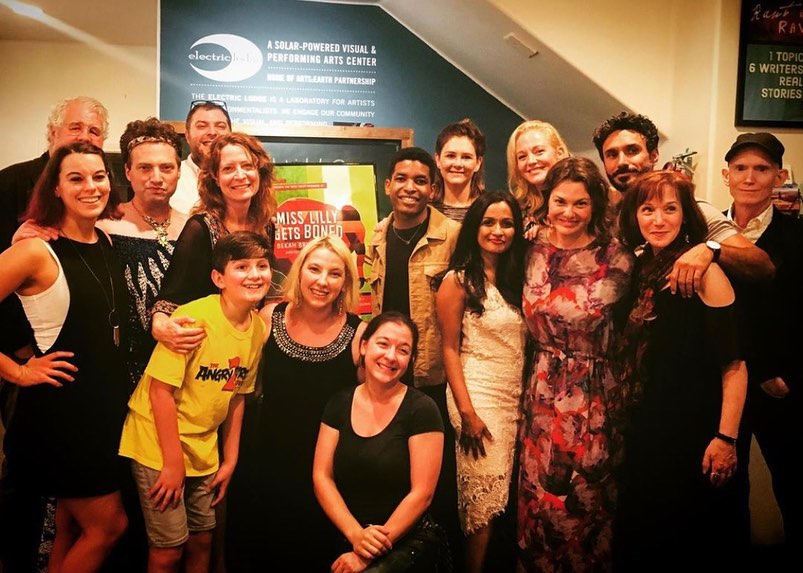
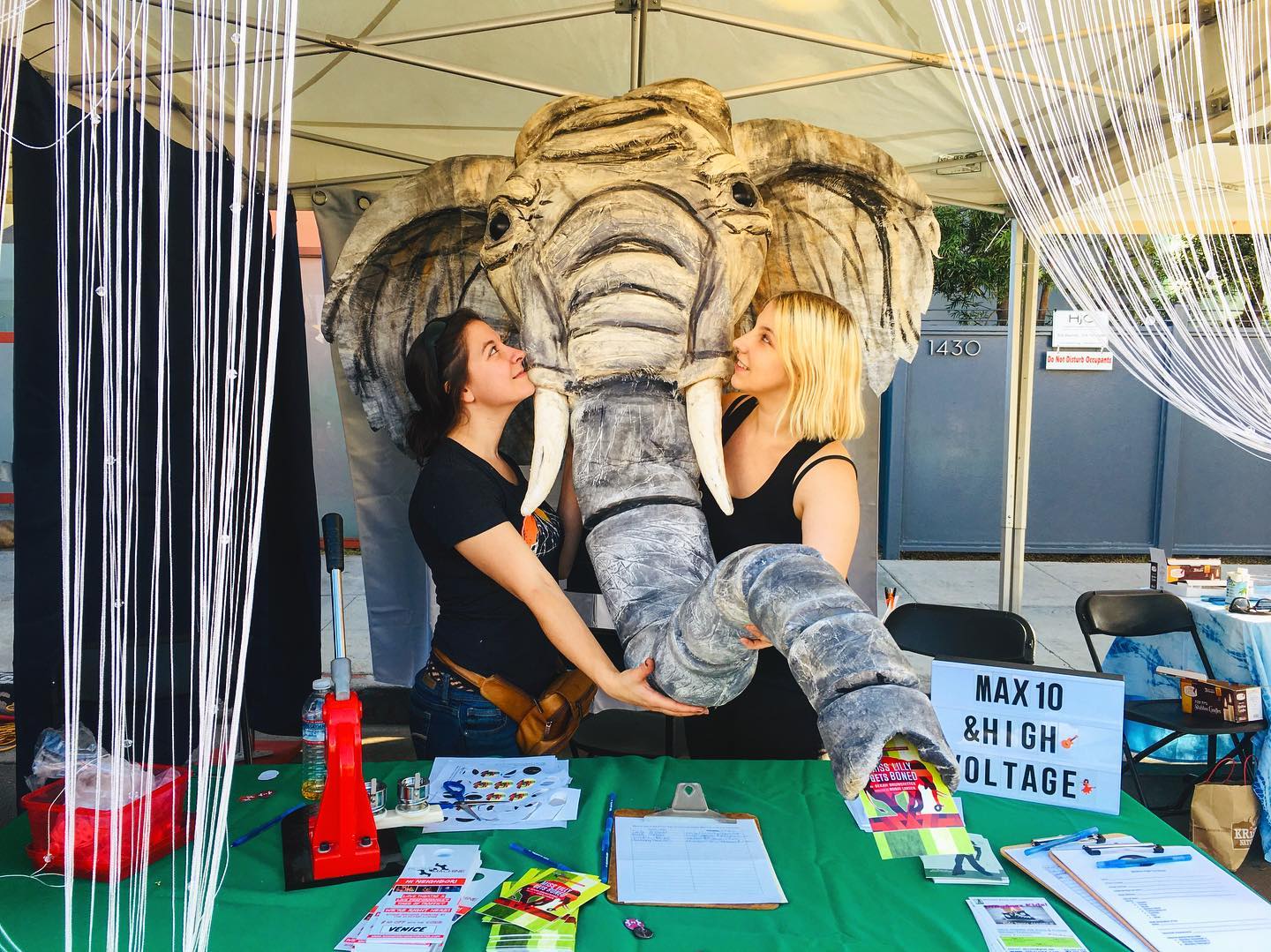
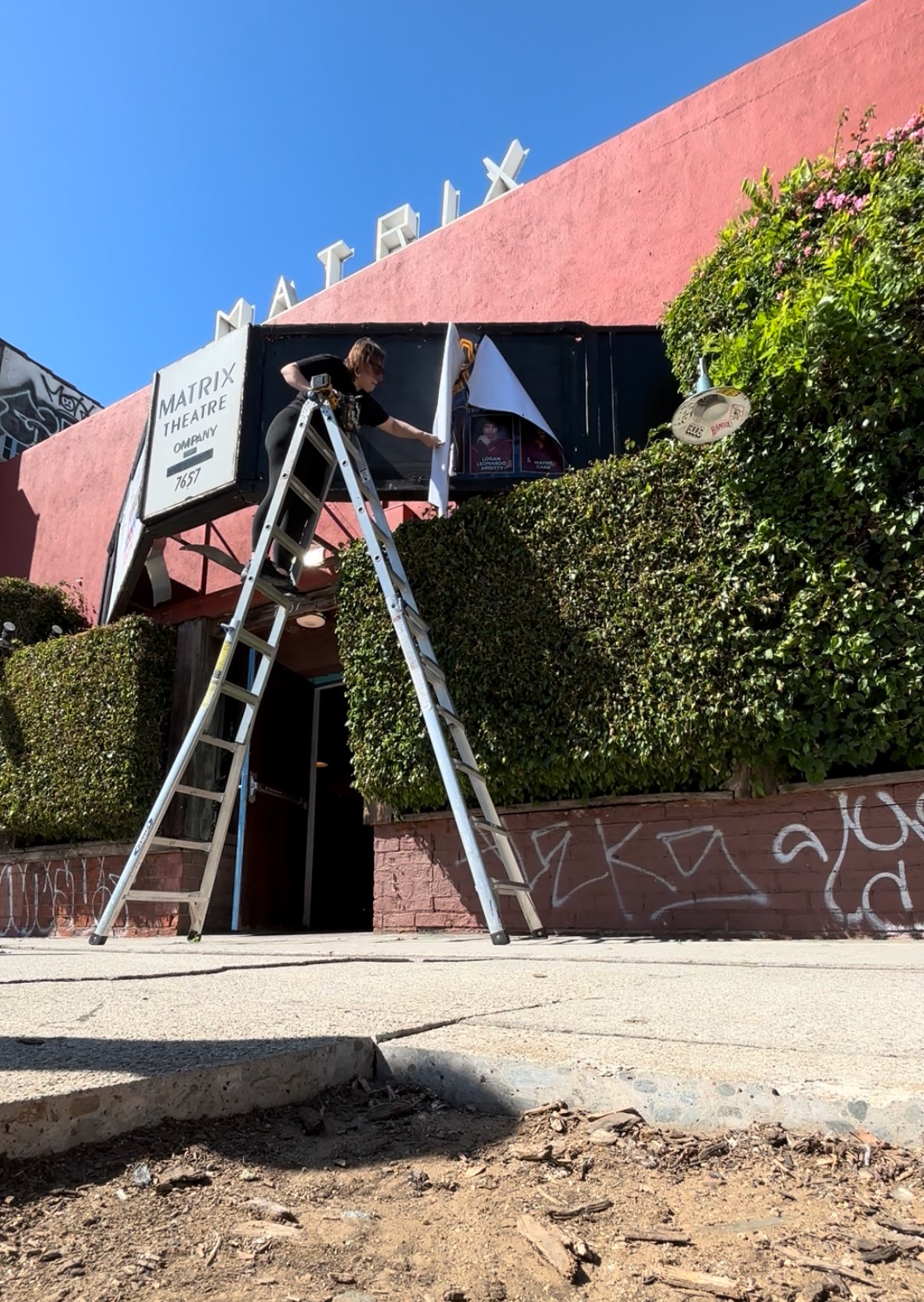
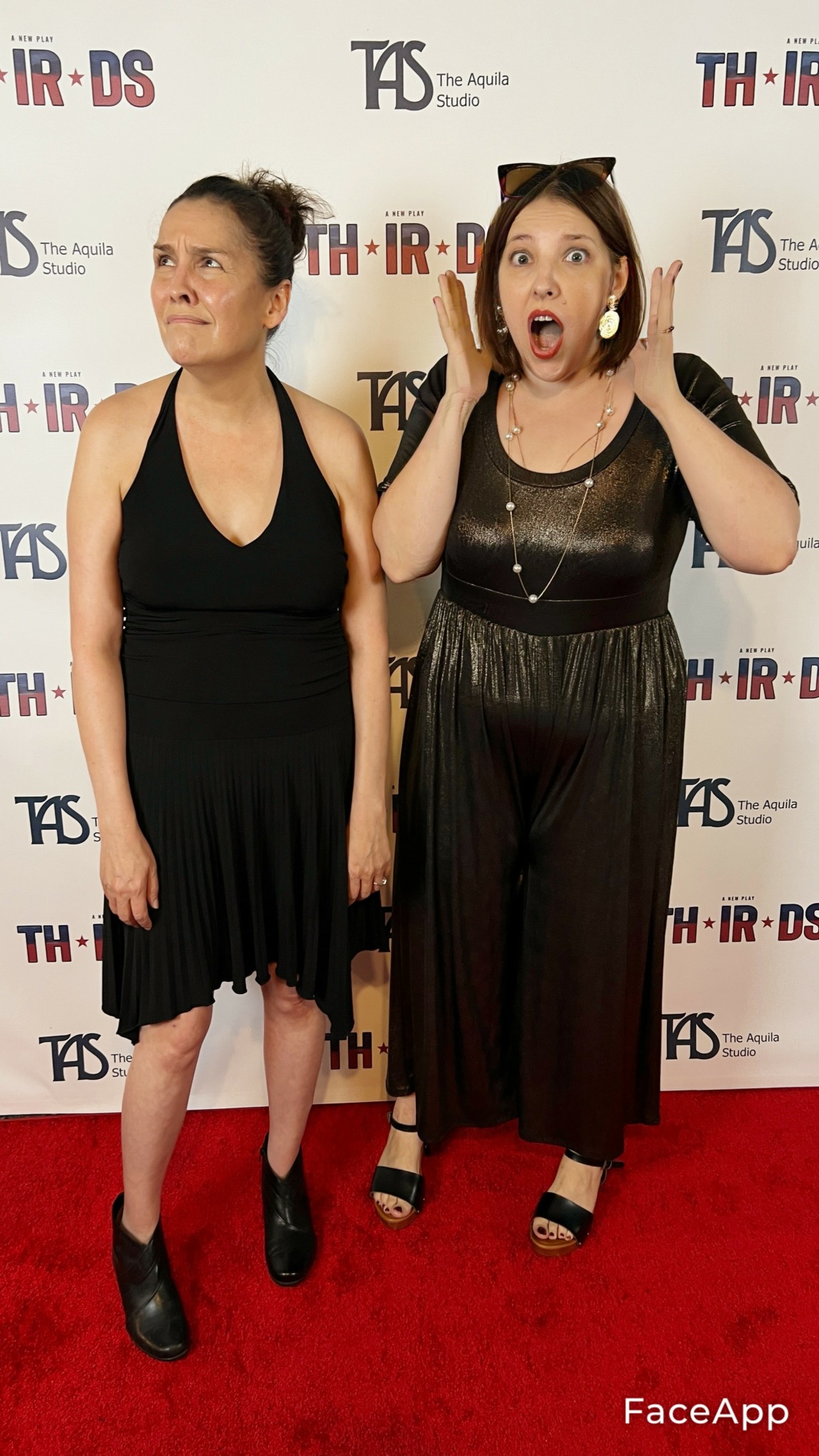
Image Credits
Profile photo: Jeff Lorch


